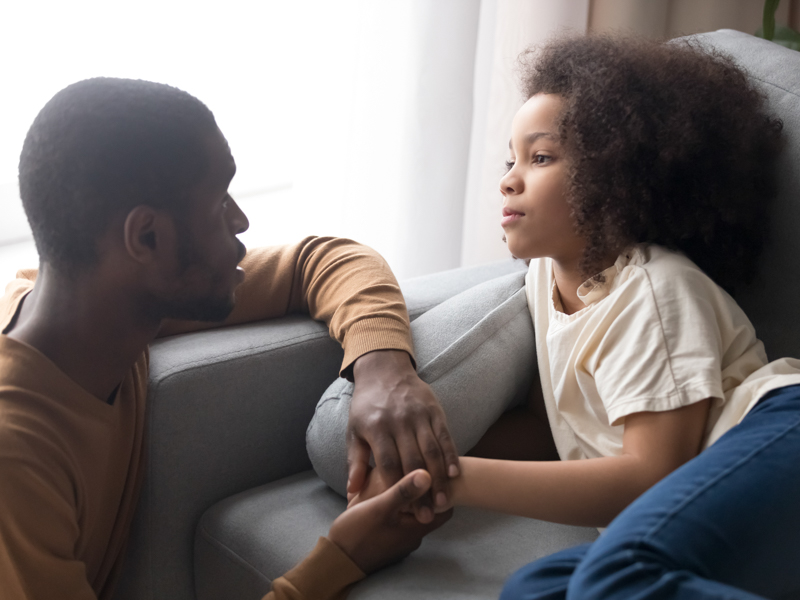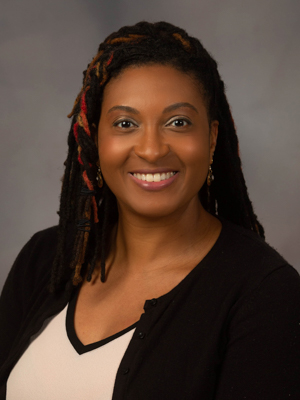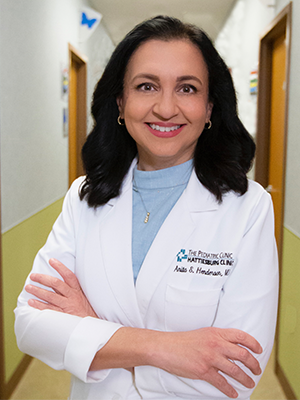How to answer children’s questions about war: UMMC experts weigh in

Images of violence, explosions, homes bombed to rubble, and refugees trying to make their way to safety may have children asking questions about war that no parent wants to answer.
Talking with a child frankly about war or other difficult subjects can build trust, said Gigi Holder, a licensed clinical social worker at Children’s of Mississippi’s Center for Advancement of Youth.

“I think the main point to focus on is conflict resolution so that the child can be introduced to and learn how to approach a situation with the goal to resolve it and not escalate it,” she said. “If parents can equate war to something that a child can relate to, then they can begin to connect such aspects as conflict, anger, and not getting along with someone and how that can transform into a fight.”
CAY, located at 4400 Old Canton Road, offers coordinated care across disciplines for children with behavioral or developmental issues. It is part of Children’s of Mississippi, the pediatric arm of the University of Mississippi Medical Center that includes the state’s only children’s hospital as well as clinics around the state.
The stress of the invasion of Ukraine following the COVID-19 pandemic has left more children and teens in need of mental health services, said Dr. Philip Merideth, professor of psychiatry and medical director for CHAMP, a program that operates a free telephone consultation service that connects primary care providers to child mental health experts at UMMC.

“Primary care providers throughout the state have reported seeing an increase in mental health issues in children and adolescents following daily news reports about recent international events," Merideth said. “The CHAMP team is available to assist primary care providers in their assessment and treatment of young patients and their families who are struggling with upsetting news reports that may be difficult for them to understand.”
Merideth, Holder and Dr. Anita Henderson, president of the Mississippi Chapter of the American Academy of Pediatrics and a pediatrician at the Hattiesburg Clinic, offer parents three tips for talking with children about war and other traumatic world events.
Talk with children about their concerns
Henderson said parents of younger children should be prepared to discuss disturbing current events when their children ask, giving them information that’s appropriate for their age and cognition.

“Sometimes, especially with younger children, you may need to spend extra time playing with them to help them share any worries or concerns,” she said. “Children often pick the most inconvenient times to share, so parents must be ready to listen whenever their child is ready to talk.”
Making sure a child feels safe is important, Holder said. “Discussion of their concerns can add to security for children as well as help build problem-solving skills.”
“One strategy would be to give children a scenario in which they have to identify and explain both sides of the story to decide what’s the better or best choice,” she said. “Asking the child to think through both sides can help them to start developing abstract thinking and problem-solving skills to determine the appropriate action. This can be a great way to increase logic and welcome empathy when children are encouraged to start thinking about situations from another person’s perspective.”
Listen more than you talk
Henderson recommends that parents listen more than speak when children ask questions about wars, refugee crises and other issues.
“One of the first things I recommend when your child is dealing with any type of traumatic event is listening,” she said. “Find out what they have heard, ask them what they know about the event, and then listen to their concerns and fears.”
Go on a news diet
There’s a fine line between staying informed and watching too many news reports. Holder and Henderson both recommend going on a news diet during trying times.
“We are constantly inundated with information all the time, and when that information tends to air on the negative or downtrodden side, it can weigh on us mentally and emotionally,” Holder said. “Because of that, it can be good to take breaks. For some that may be only reading the headlines of stories to stay abreast of what’s going on, and for others it may be turning off the news all together for a few days or even weeks. That time span will differ from person to person.”
Henderson agreed. “I would advise parents to refrain from having the TV or news on too much. Children do not need to constantly watch the 24-hour news cycle, as too much graphic information can be disturbing and scary.”
For families, stepping away from information outlets like the news can allow for other activities to take place, Holder said.
“Going on a news diet can allow for family talks during mealtimes, watching a fun movie together, or anything else that encourages positive quality time together.”
Early intervention is essential
Noticing signs of anxiety or stress early is the first step toward better mental health, Merideth said.
“Our team of child mental health professionals encourages parents and caregivers to seek early intervention for the stress of news such as the war in Ukraine to prevent the development of more serious symptoms of anxiety and depression,” he said. “Simple steps for early intervention regarding such traumatic events can be effective. A few minutes of developmentally appropriate intervention at home can prevent hours of therapy later."


